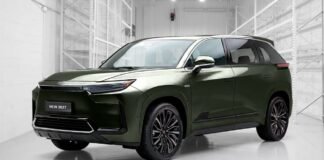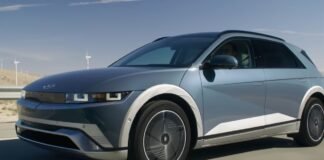Today, I’ll be talking about my RAV4 Hybrid, which I bought about a month ago. In that time, I’ve driven over 1,500 miles and discovered some flaws and characteristics in real-life situations that, frankly, I wish Toyota had improved. We’re going to get into those today.
Before we dive into the list of things I dislike about the RAV4 Hybrid, I want to emphasize that, overall, it’s a very good vehicle. This is the bestselling vehicle globally, so it has a lot of positive aspects. I’d be happy to make a list of things I love about this platform as well, but today, we’ll focus on the seven main issues I’ve encountered.
These are legitimate concerns that you should know about if you’re considering buying one. If you’re planning to spend $30,000 to $45,000 on a RAV4, you should be aware of what’s going on.
1. Tires – Not Great for Winter Conditions
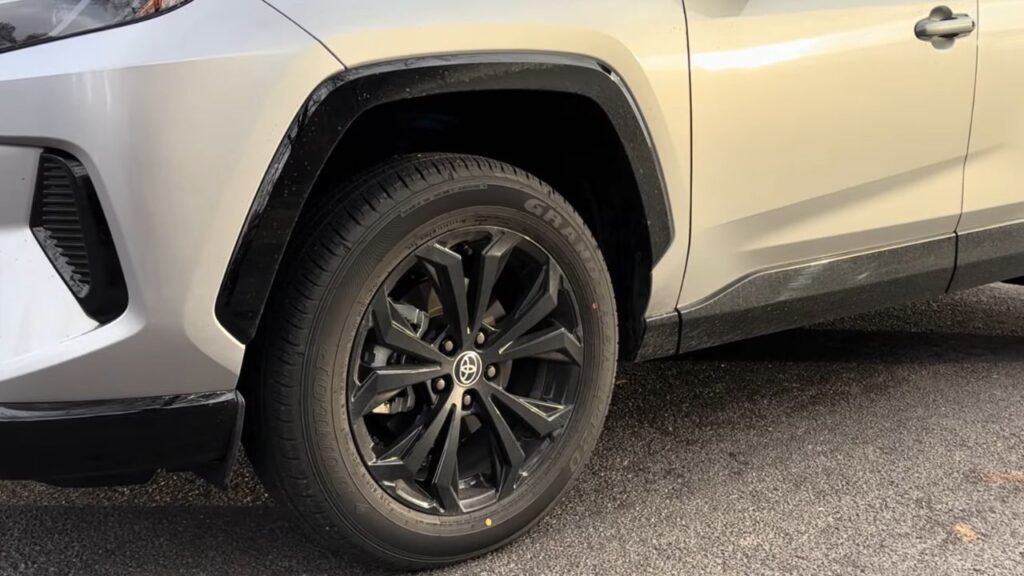
The first issue I encountered with the RAV4 Hybrid is related to its tires. If you live in a Southern state or somewhere that doesn’t experience snow, this might not be a big deal for you. But for those of us in the Northwest or areas that get heavy snow, tires are essential. Toyota equips the RAV4 Hybrid with Dunlop Grand Trek PT20 tires, which, quite frankly, aren’t great for winter conditions.
The tread depth on these tires varies from one vehicle to another, but many users online have reported that they perform terribly in the snow. The good news is that I’ve already ordered a much better tire – a Yokohama Geolandar, which is severe weather rated. I’m looking forward to seeing how much of an improvement this tire makes, especially when driving in snowy conditions.
2. Tight Door Openings – A Hassle for Parents or Anyone with Large Items
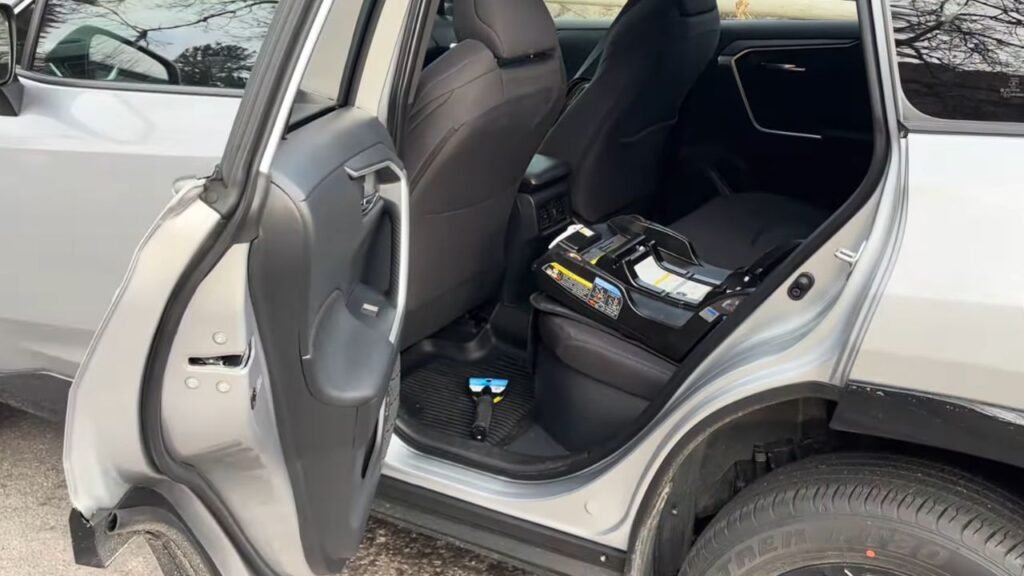
Another issue that’s been a bit frustrating is how far the doors open. The driver’s and front passenger doors open wide enough for most people, but the back doors don’t open as far as they should. When you need to load larger items, like a child seat or stroller, you’ll find it a tight squeeze.
Compared to other compact crossovers, the RAV4’s rear door openings are about 10 to 15 degrees less wide. This small difference makes a big impact, especially when you’re trying to load bulky items. I’ve noticed a lot of rubbing and scuffing in the door area, which is just something to consider if you’re using the car for family errands or transporting large items regularly.
3. Misleading MPG – Better Around Town, Not So Much on the Highway

The RAV4 Hybrid is rated for 41 MPG in the city and 39 MPG on the highway. While that’s impressive in some ways, I’ve found it a bit misleading. The non-hybrid RAV4, particularly models with 17-inch wheels, is rated for 35 MPG on the highway. So, the RAV4 Hybrid only provides a small improvement—around 3 more MPG on the highway, which is less than a 10% improvement.
Where the Hybrid really shines is around town. With the battery pack and electric motors, the vehicle is much more efficient during city driving. However, when driving at highway speeds (around 80 MPH on our interstates), the MPG is not significantly better than the non-hybrid model. That said, it’s still a huge benefit around town and in stop-and-go traffic.
4. All-Wheel Drive System – Underwhelming and Needs Improvement
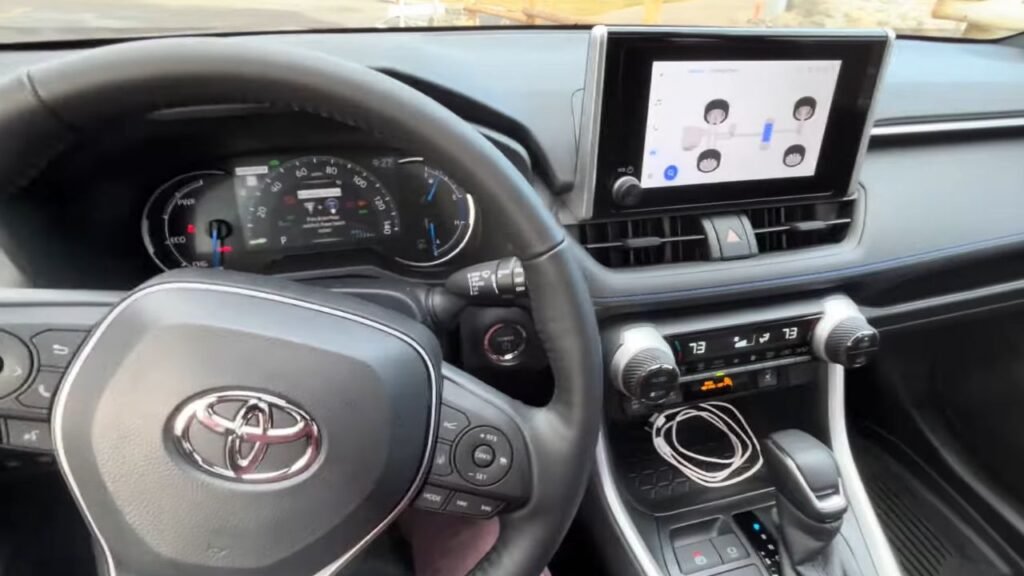
The all-wheel-drive (AWD) system in the RAV4 Hybrid is another area where I’ve encountered issues. In the rain, the AWD system works decently, but to get the rear motor to engage, you need to give it quite a bit of gas. And even then, it’s only a 50-horsepower motor, which overheats quickly and uses up the battery. It’s not the most reliable when you need it most.
What would make a big difference is if there was a button to engage AWD all the time, especially during highway driving. This way, the rear motor would give you a bit more stability and reduce the likelihood of losing control. It’s concerning that if the battery dies or there’s a problem with the wiring harness, the rear motor may not engage at all, leaving you with a front-wheel-drive vehicle.
5. Interior Features – Some Design Flaws
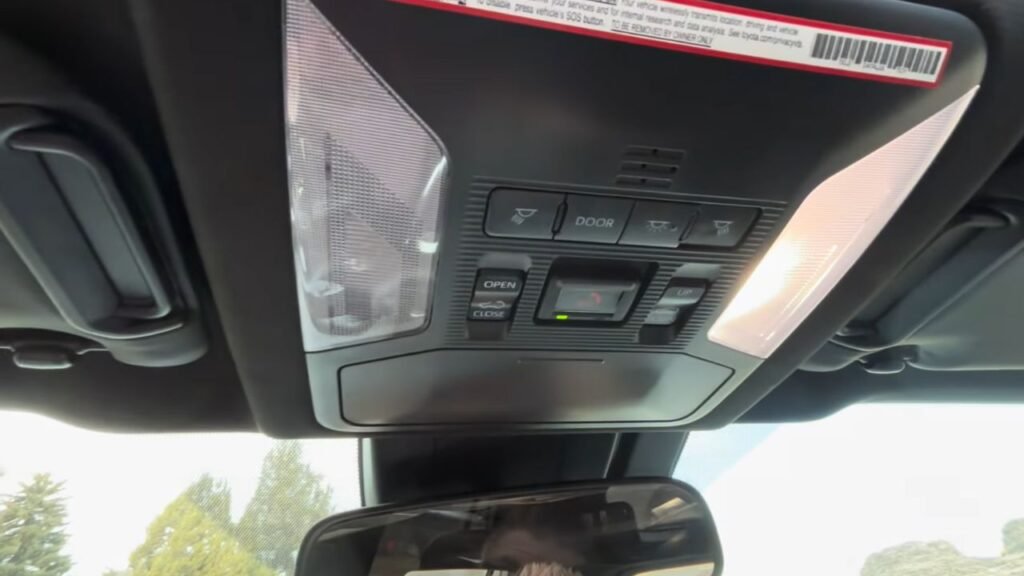
Now, let’s talk about the interior. While the design is nice overall, there are a few features that need improvement. First off, the overhead lights are huge, and while they do have tiny buttons to operate them, it’s hard to find those buttons in the dark. This can be especially frustrating when you need to quickly adjust the light while driving at night.
The HVAC system buttons are also a bit awkward. While the knobs are physical (which is great), they lack distinct positions and can be turned infinitely, making it hard to adjust the temperature precisely. Additionally, the buttons for heated seats and other features are small and easy to accidentally press, especially when wearing gloves.
6. Toyota Safety Sense 2.5 – Lane Tracing Assist Needs Work
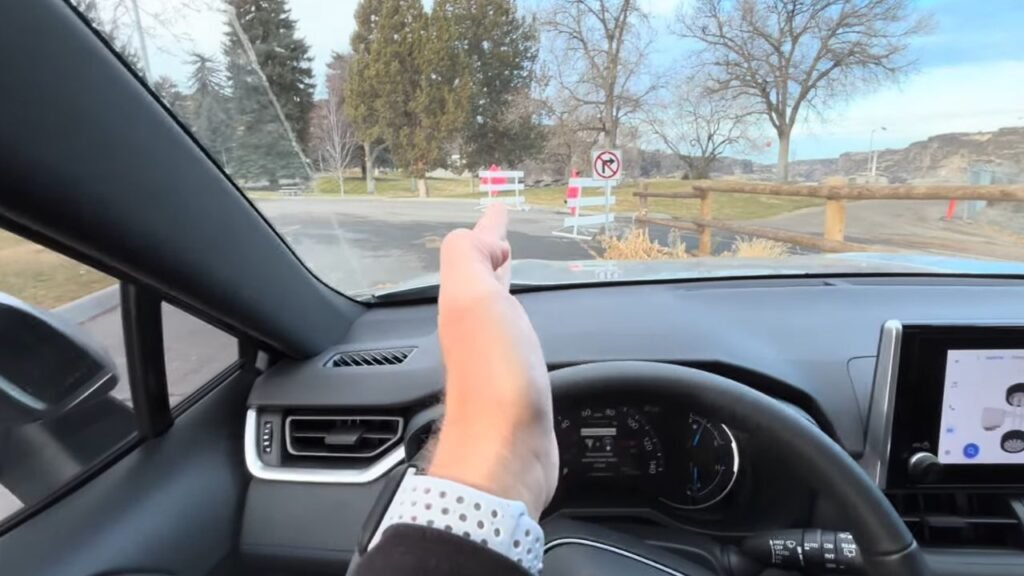
The Toyota Safety Sense 2.5 system is a feature that’s supposed to make driving easier, but I’ve found it underwhelming. In particular, the Lane Tracing Assist feature is very rudimentary and doesn’t work as well as other systems like Subaru’s EyeSight. The system tends to let the car wander within the lane and then beep at you, which can be annoying on long trips.
On the highway, especially at higher speeds like 80 MPH, the Lane Keep Assist also struggles. It doesn’t keep the car centered in the lane and can feel like a distraction rather than a safety feature. The adaptive cruise control works fine, but it’s not the most advanced system out there, and I’d love to see Toyota improve it in the future.
7. Luxury Features – Could Be Better
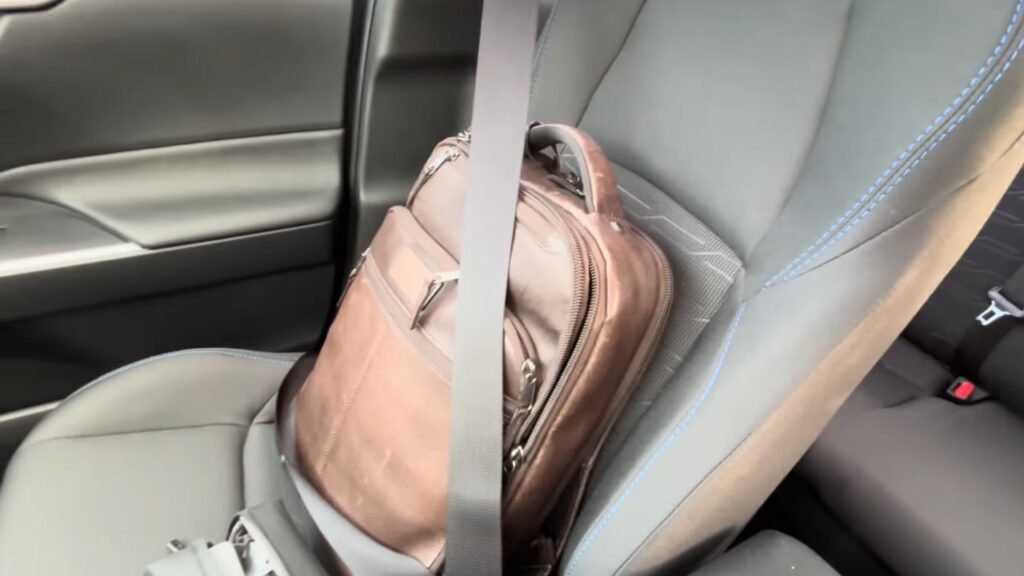
Finally, we have a few luxury features that don’t quite live up to expectations. For example, the heated steering wheel gets incredibly hot in certain spots, but the heat doesn’t spread evenly across the wheel. This makes it awkward to hold, especially since I don’t always grip the wheel in the places where it gets the hottest.
The heated seats also don’t get as hot as I’d like. They’re fine for the lower portion of the seat, but there’s no heat higher up, and the heat doesn’t seem to last as long as it should. Comparing it to other vehicles like a Mazda, where the seats can almost burn you, the RAV4’s heated seats fall short.
Additionally, there’s no convenient tunnel to manage cords, despite having USB-C plugs. The cords can easily get smashed under the console, which is a small inconvenience but one that Toyota could have easily fixed.
Another issue is with remote start. If your RAV4 Hybrid is equipped with this feature, it’s a bit of a letdown. When you use remote start, the engine shuts off as soon as you open the door, and you need to restart the vehicle. In comparison, other vehicles allow you to enter the car and start it without having to go through the process again. Hopefully, Toyota fixes this issue in the 2025 model.
Final Thoughts
So, there you have it—seven things I’ve noticed in the first month of owning the RAV4 Hybrid. Despite these concerns, I still love the vehicle and believe it’s a great choice for many people. If you don’t mind these flaws or don’t need AWD or better tires right off the bat, this vehicle will likely work great for you.
I’m looking forward to getting my new tires on soon and testing them out in the snow, and I’ll keep you updated on how that goes. Thanks for reading, and if you found this post helpful, feel free to like it and share your thoughts below. Don’t forget to subscribe for more reviews and updates on the RAV4 Hybrid and other cars!
